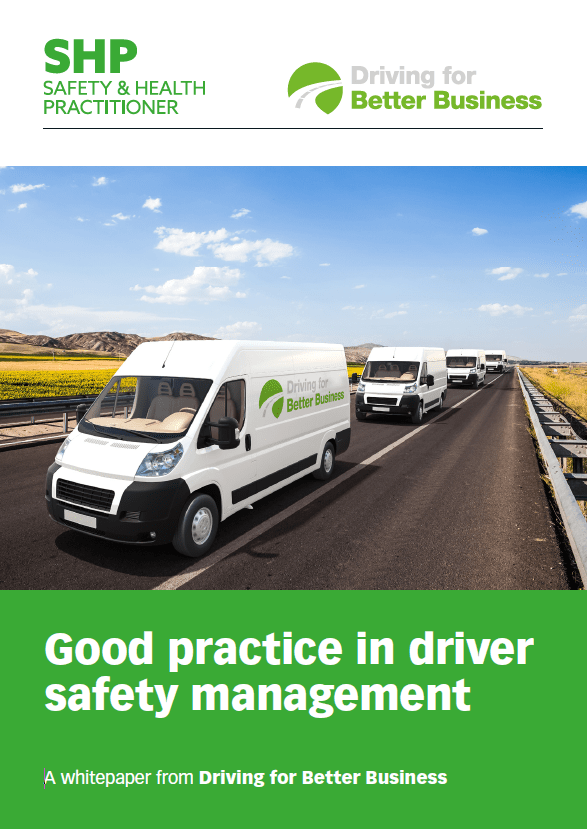 It was my pleasure to chair the IOSH Midlands Branch East District Managing Occupational Road Risk (MORR) conference on 25 February 2015. This is a subject dear to my heart as a keen cyclist and due to the needless deaths of at least 1,700 prop le in 2013 and injuries to thousands more.
It was my pleasure to chair the IOSH Midlands Branch East District Managing Occupational Road Risk (MORR) conference on 25 February 2015. This is a subject dear to my heart as a keen cyclist and due to the needless deaths of at least 1,700 prop le in 2013 and injuries to thousands more.
The event objectives were to:
- Provide delegates with a clear understanding of the management of occupational road risk in protecting the driving force of their businesses;
- Involve delegates via interaction; and
- Enable delegates to increase their knowledge and develop competence in managing occupational road risk.
The conference was supported by a number of exhibitors including IAM, March, FTA and representatives from the emergency services.
Alan Rogers MBE (a retired road traffic policeman) presented his thoughts on speed and explained how inappropriate speed kills and how deaths and injuries did not just occur at high speeds, with the key message being that the greater the speed the greater the mess. Alan also stated that the cost to the UK of each road fatality was in the region of £1.6 million pounds.
Hayley Saunders from Shoesmiths solicitors provided an overview of the civil and criminal aspects of road fatalities and the importance of employers to assess risk for their vehicle users. Including the importance of communicating what you expect from them and monitoring to ensure it is happening.
Kevin Clinton, head of road safety at RoSPA explained the importance of employers taking a holistic approach to driving and the need to encourage staff to drive safely both in and outside of the world of work. Kevin also reiterated that road safety was a bigger issue than work-related safety in terms of injury and death rates and that technology could be better used to help employers as part of their occupational road risk management strategy.
The Marsh representatives (Dan Karmy and Chris Skilling) explained how the insurance industry viewed fleet road risk and the need for employers to have good record keeping in place when things go wrong. They also provided a brief insight into the fleet risk hard and soft scoring system, which provided smart employers opportunities to reduce premiums by working with their insurers and making them aware of what they are doing.
Mark Cartwright, the FTA representative, provided an entertaining overview of the van excellence scheme, which was an extension of what would be expected from all professional drivers (e.g. heavy goods, passenger service vehicles). They explained how for a number of SMEs a major road accident could cost their business dearly. Mark also explained that it was crazy for employers to be handing over the keys to equipment worth thousands of pounds to employees without proper training, instruction or assessment. I was left thinking there was a great opportunity to launch a fleet car drivers’ excellence code.
Duncan Pickering, the IAM representative, provided a summary of the need for employers to have clear polices in place for road risk with appropriate risk assessments and mechanisms to check/monitor compliance including the use of the grey fleets and pool vehicles.
There were two formal Q&A sessions where delegates had an opportunity to ask the speakers questions, over 30 questions were raised and the answers will be provided on the IOSH Midland branch website.
Overall it was an excellent opportunity for the 130 + delegates to learn more about managing occupational road risk and networking.
This eBook will guide you through some of the key understandings you need to be able to manage driver safety effectively and, at the end, provide a series of free resources you can access to help you ensure your own driver safety management system is robust, legally compliant and in line with industry-accepted good practice.
Download this eBook from Driving for Better Business and SHP to cover:
- Why do we need to manage driver safety?
- Duty of care – a shared responsibility;
- Setting the rules with a driving for work policy;
- Managing driver safety;
- Ensuring safe vehicles;
- Safe journeys and fitness to drive;
- Record keeping;
- Reporting;
- The business benefits of good practice;
- Additional resources


